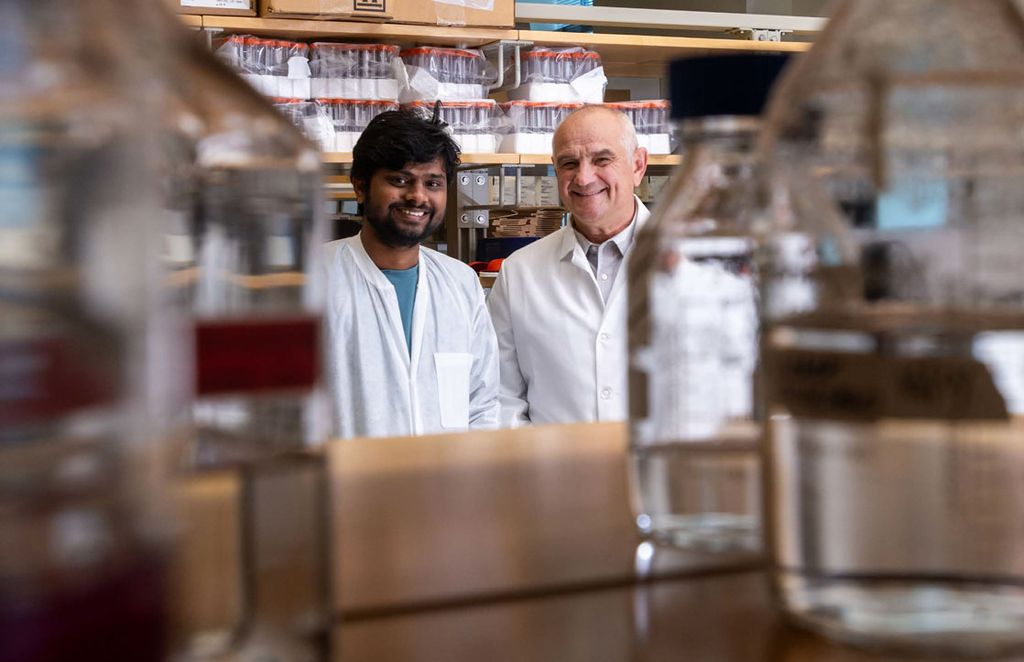Rethinking How We Tackle TB
A team of BU researchers had a major breakthrough in discovering an effective way to fight tuberculosis, a deadly disease that still kills more than a million people each year in spite of all the safety measures modern medicine has developed to control it.
Igor Kramnik, associate professor of medicine, and Shivraj M. Yabaji, postdoc researcher at BU’s National Emerging Infectious Diseases Laboratories (NEIDL), have found a way to influence the body’s immune cells to make them better at fighting TB. By isolating a type of white blood cell vulnerable to TB, and making that cell resistant to TB, they are pioneering a whole new approach to treatment.

Like other research being done at BU, this work is using the body’s own systems to fight infection and disease. “It’s a way of treating the host, the patient, rather than focusing on the pathogen,” explains Kramnik. The discovery is crucial at this moment, because TB is becoming resistant to the traditional means modern medicine has been using to fight it.
“It’s a way of treating the host, the patient, rather than focusing on the pathogen.”
—IGOR KRAMNIK
A recent BU study showed that the standard TB vaccine was only about 37% effective in children under five years of age and offered no protection for adolescents and adults. And for those who have been infected, antibiotics are losing their power: according to the World Health Organization, annually, about 500,000 people become ill from drug-resistant TB globally.
This transformative new treatment could be in clinical trials soon. “We hope that our research will contribute to the development of more effective treatments for TB by better understanding how to fine-tune the activation states of immune cells,” says Yabaji.